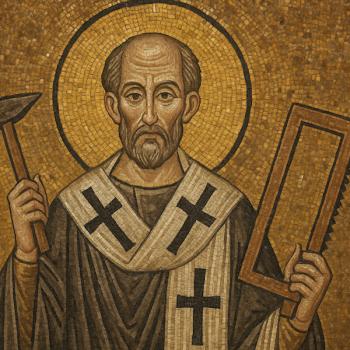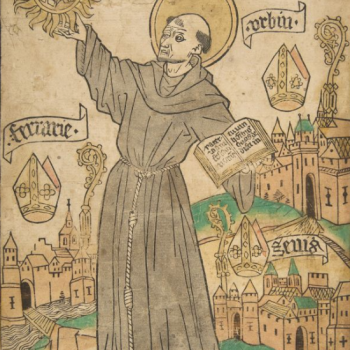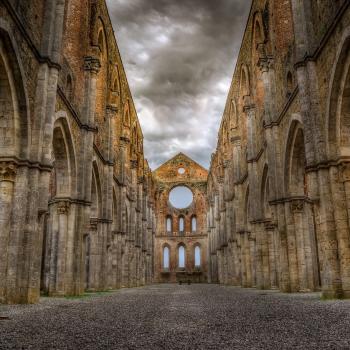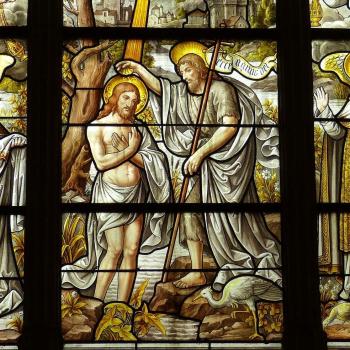In A Tale of Two Plagues, we covered two ancient plagues— the plague in Athens during the early Peloponnesian War as described by Thucydides, and the plague in Alexandria recorded by Eusebius. The second plague included Christians, whose behavior stood out among Alexandrians. We also discovered many parallels to the current COVID-19 pandemic. The pestilence described in Alexandria attacked many other regions of the Roman Empire. It is often called today the Cyprian Plague, named after the church father from Carthage who wrote a treatise about this plague.
In this study, we explore Cyprian of Carthage’s treatise on the plague that devastated his city: Treatise VII: Concerning the Mortality (c. 253 A. D.).* Both the description of the plague and attitude Christians were to have regarding it are worth repeating. Here are 10 takeaway points:
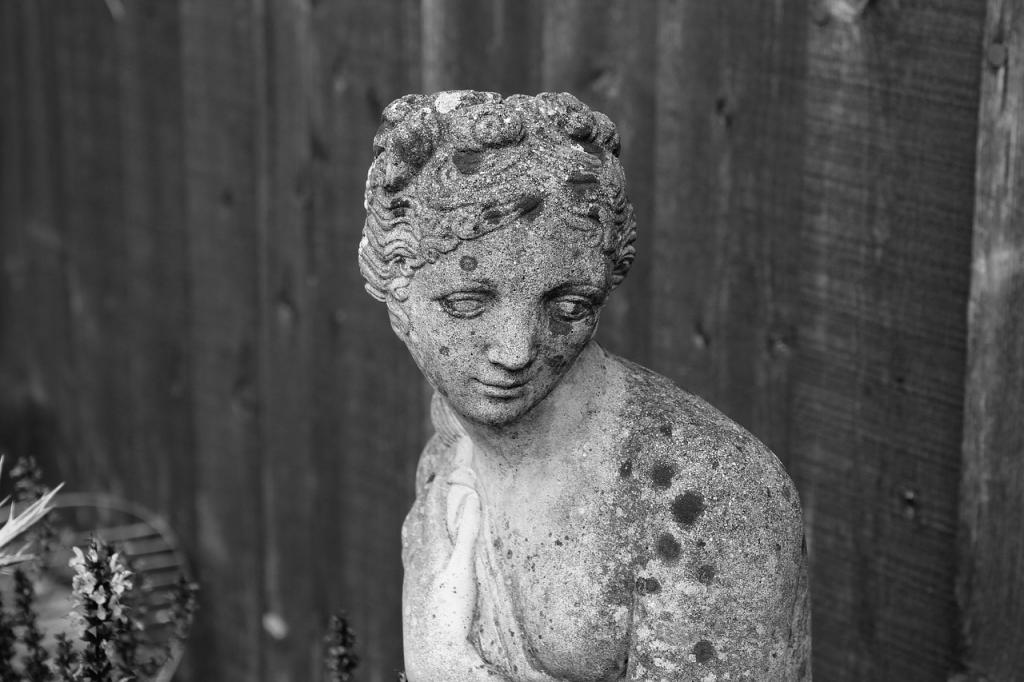
The Cyprian Plague (c. 253)
- Description of the plague on the body turns out to be the “proof” of one’s faith.
“This trial, that now the bowels, relaxed into a constant flux, discharge the bodily strength; that a fire originated in the marrow ferments into wounds of the fauces; that the intestines are shaken with a continual vomiting; that the eyes are on fire with the injected blood; that in some cases the feet or some parts of the limbs are taken off by the contagion of diseased putrefaction; that from the weakness arising by the maiming and loss of the body, either the gait is enfeebled, or the hearing is obstructed, or the sight darkened;—is profitable as a proof of faith. What a grandeur of spirit it is to struggle with all the powers of an unshaken mind against so many onsets of devastation and death!” (Cyprian, Treatise 7.14; cf. 7.2, 3-6).
- The plague was great and had a way of testing all humans.
“…what a great thing is it, how pertinent, how necessary, that that pestilence and plague which seems horrible and deadly, searches out the righteousness of each one, and examines the minds of the human race, to see whether they who are in health tend the sick; whether relations affectionately love their kindred; whether masters pity their languishing servants; whether physicians do not forsake the beseeching patients; whether the fierce suppress their violence; whether the rapacious can quench the ever insatiable ardour of their raging avarice even by the fear of death; whether the haughty bend their neck; whether the wicked soften their boldness; whether, when their dear ones perish, the rich, even then bestow anything, and give, when they are to die without heirs” (Treatise 7.16).
Another description of the general public is more pessimistic; this one from Deacon Pontius of Carthage, Cyprian’s biographer:
“Afterwards there broke out a dreadful plague, and excessive destruction of a hateful disease invaded every house in succession of the trembling populace, carrying off day by day with abrupt attack numberless people, every one from his own house. All were shuddering, fleeing, shunning the contagion, impiously exposing their own friends, as if with the exclusion of the person who was sure to die of the plague, one could exclude death itself also. There lay about the meanwhile, over the whole city, no longer bodies, but the carcases of many, and, by the contemplation of a lot which in their turn would be theirs, demanded the pity of the passers-by for themselves. No one regarded anything besides his cruel gains. No one trembled at the remembrance of a similar event. No one did to another what he himself wished to experience” (Pontius, Life and Passion of Cyprian, 9).**
- Many Christians remained steadfast in faith despite the numerous deaths they saw caused by the plague
“Although in very many of you, dearly beloved brethren, there is a stedfast mind and a firm faith, and a devoted spirit that is not disturbed at the frequency of this present mortality, but, like a strong and stable rock, rather shatters the turbulent onsets of the world and the raging waves of time, while it is not itself shattered, and is not overcome but tried by these temptations…” (Treatise 7.1).
“Many of our people die in this mortality, that is, many of our people are liberated from this world” (Treatise 7.15).
- The faith of some Christians, however, was shaken, not only because of the plague but because of luxury, laziness, and false teachings.
“…yet because I observe that among the people some, either through weakness of mind, or through decay of faith, or through the sweetness of this worldly life, or through the softness of their sex, or what is of still greater account, through error from the truth, are standing less steadily, and are not exerting the divine and unvanquished vigour of their heart … the slothfulness of a luxurious disposition must be restrained, and he who has begun to be already a man of God and of Christ, must be found worthy of God and of Christ” (Cyprian, Treatise 7.1).
“It is for him to wish to remain long in the world whom the world delights, whom this life, flattering and deceiving, invites by the enticements of earthly pleasure. Again, since the world hates the Christian, why do you love that which hates you? and why do you not rather follow Christ, who both redeemed you and loves you? John in his epistle cries and says, exhorting that we should not follow carnal desires and love the world…Rather, beloved brethren, with a sound mind, with a firm faith, with a robust virtue, let us be prepared for the whole will of God: laying aside the fear of death, let us think on the immortality which follows” (Treatise 7.24).
- Christians are not to think themselves exempt from plagues; suffering is part of being Christian.
“But nevertheless it disturbs some that the power of this Disease attacks our people equally with the heathens, as if the Christian believed for this purpose, that he might have the enjoyment of the world and this life free from the contact of ills; and not as one who undergoes all adverse things here and is reserved for future joy. It disturbs some that this mortality is common to us with others…So long as we are here in the world, we are associated with the human race in fleshly equality, but are separated in spirit… Thus, when the earth is barren with an unproductive harvest, famine makes no distinction; thus, when with the invasion of an enemy any city is taken, captivity at once desolates all; and when the serene clouds withhold the rain, the drought is alike to all; and when the jagged rocks rend the ship, the shipwreck is common without exception to all that sail in her; and the disease of the eyes, and the attack of fevers, and the feebleness of all the limbs is common to us with others, so long as this common flesh of ours is borne by us in the world… Moreover, if the Christian know and keep fast under what condition and what law he has believed, he will be aware that he must suffer more than others in the world, since he must struggle more with the attacks of the devil (Treatise 7.8–9).
- Christians are in a spiritual battle, and they are not to be disturbed by the pandemic; such things were predicted by the Lord.
“For he who wars for God, dearest brethren, ought to acknowledge himself as one who, placed in the heavenly camp, already hopes for divine things, so that we may have no trembling at the storms and whirlwinds of the world, and no disturbance, since the Lord had foretold that these would come… He predicted and said that wars, and famines, and earthquakes, and pestilences would arise in each place [Luke 21; Matthew 24]; and lest an unexpected and new dread of mischiefs should shake us, He previously warned us that adversity would increase more and more in the last times (7.2; cf. 7.4).
- Christians are to recall righteous individuals in the past who exemplified endurance. It is in weakness that the believers’ strength is perfected.
“Righteous men have ever possessed this endurance. The apostles maintained this discipline from the law of the Lord, not to murmur in adversity, but to accept bravely and patiently whatever things happen in the world…The fear and faith of God ought to make you prepared for everything, although it should be the loss of private estate, although the constant and cruel harassment of your limbs by agonizing disorders….nor let them weaken nor break the Christian’s faith, but rather show forth his strength in the struggle, since all the injury inflicted by present troubles is to be despised in the assurance of future blessings” (7.11-12; cf. 7.10).
As Paul, whose “thorn in the flesh” was met with “my grace is sufficient for thee…When, therefore, weakness and inefficiency and any destruction seize us, then our strength is made perfect; then our faith, if when tried it shall stand fast, is crowned” (7.13).
- Some who wished to be martyred should not be upset if they do not experience martyrdom due to dying because of the pandemic (!)
“But perchance someone may object, and say, ‘It is this, then, that saddens me in the present mortality, that I, who had been prepared for confession, and had devoted myself to the endurance of suffering with my whole heart and with abundant courage, am deprived of martyrdom, in that I am anticipated by death.’ In the first place, martyrdom is not in your power…He who sees that your virtue was ready in you, will give you a reward for your virtue.” (7.17). “We ought to remember that we should do not our own will, but God’s, in accordance with what our Lord has bidden us daily to pray….”(7.18)
- Based on Scripture, Christians are not to react over the death of friends as others do who have no hope.
“’I would not,’ says he [the Apostle Paul], have you ignorant, brethren, concerning them which are asleep, that ye sorrow not, even as others which have no hope. For if we believe that Jesus died and rose again, even so them which are asleep in Jesus Will God bring with Him.’ [ 1 Thessalonians 4:13–14]… since we shall not die eternally, let us come with a glad security unto Christ, with whom we are both to conquer and to reign forever” (7.21).
- This life is not all there is—believers can look forward to a heavenly paradise.
“This mortality, as it is a plague to Jews and Gentiles, and enemies of Christ, so it is a departure to salvation to God’s servants. The fact that, without any difference made between one and another, the righteous die as well as the unrighteous, is no reason for you to suppose that it is a common death for the good and evil alike. The righteous are called to their place of refreshing, the unrighteous are snatched away to punishment; safety is the more speedily given to the faithful, penalty to the unbelieving” (7.15). 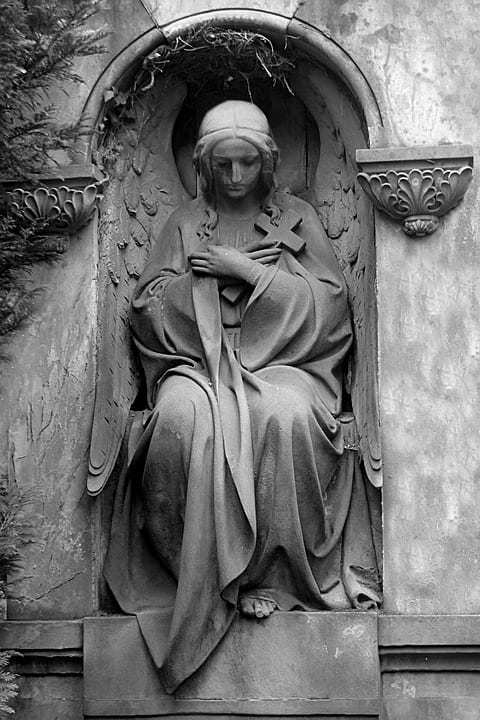
“And this, as it ought always to be done by God’s servants, much more ought to be done now—now that the world is collapsing and is oppressed with the tempests of mischievous ills; in order that we who see that terrible things have begun, and know that still more terrible things are imminent, may regard it as the greatest advantage to depart from it as quickly as possible” (7.25).
“…we should ever and anon reflect that we have renounced the world, and are in the meantime living here as guests and strangers. Let us greet the day which assigns each of us to his own home, which snatches us hence, and sets us free from the snares of the world, and restores us to paradise and the kingdom. Who that has been placed in foreign lands would not hasten to return to his own country? Who that is hastening to return to his friends would not eagerly desire a prosperous gale, that he might the sooner embrace those dear to him? We regard paradise as our country—we already begin to consider the patriarchs as our parents: why do we not hasten and run, that we may behold our country, that we may greet our parents?” To these, beloved brethren, let us hasten with an eager desire; let us crave quickly to be with them, and quickly to come to Christ” (7.26).
<<<< <<<<< >>>> >>>>
Similar to Eusebius’s memoirs of the letter from Dionysius of Alexandria, Cyprian’s treatise depicts the great plague of that time, but the treatise focuses less on the deeds of Christians and more on the attitude they should have regarding the pandemic. It also recognizes that certain Christians were wavering in their faith on account of the plague, along with worldly temptations. Cyprian’s exhortations still find relevance today and offer some advice for Christians who are troubled by COVID-19.
_____________________________________________________________________________________
* R. E. Wallis (Translator). Alexander Roberts, James Donaldson, A. Cleveland Coxe (Editors). Ante-Nicene Fathers: Fathers of the Third Century: Hippolytus, Cyprian, Novatian, Appendix. Vol. 5 (Buffalo, NY: Christian Literature Company, 1886), 469–475.
**R. E. Wallis (Translator). Alexander Roberts, et al. Ante-Nicene Fathers, Vol. 5. “Life and Passion of Cyprian, Bishop and Martyr.” By Pontius the Deacon, 267-74 (270).
Image 1: Statues Sadness Sad via Pixabay.com; Image 2: Sculpture Plastic-Sculpture Statue Woman Mother via Pixabay.com





